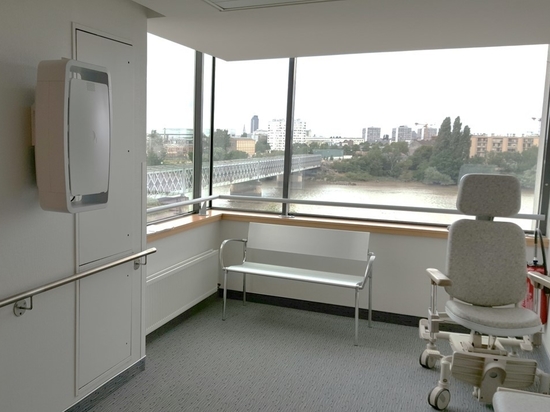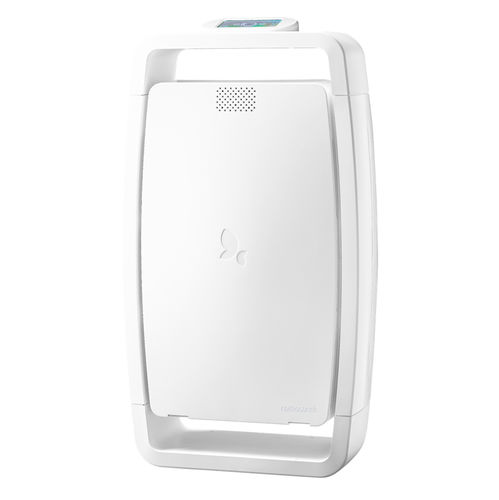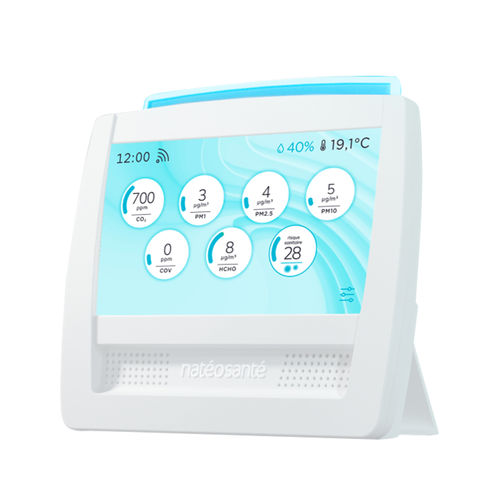
#Industry News
Nosocomial Infections in Veterinary Clinics: Effective Solutions with EOLIS Air Manager
EOLIS Air Manager: Enhancing Safety in Veterinary Settings
Nosocomial infections in veterinary clinics pose a serious health challenge, similar to issues seen in human hospitals. Though often underestimated, these infections are alarmingly common. Studies from North America have reported infection rates of 16% in dogs and 12% in cats in intensive care units. Caused by resilient pathogens, these infections can have severe impacts on both animals and veterinary staff. In this context, the EOLIS Air Manager air purifier is an invaluable asset for veterinary clinics, actively promoting air and surface cleanliness to reduce the risk of nosocomial infection spread.
Understanding nosocomial infections in veterinary environments
Nosocomial infections in veterinary clinics are caused by various pathogens, including bacteria, viruses, and occasionally parasites, and can spread easily in enclosed spaces. These infections may arise from environmental exposure (exogenous) or through the activation of dormant pathogens in immunocompromised animals (endogenous). Some bacteria, such as E. coli and Staphylococcus pseudintermedius, are multi-resistant and persist in the veterinary environment, making eradication both challenging and costly.
Nosocomial infections lead to extended treatment durations and intensive care, increasing costs for medication and long-term care. The economic impact is significant; some veterinary hospitals have reported spending up to €50,000 to contain viral infection outbreaks, including disinfection and protective equipment costs for staff. Beyond direct expenses, these infections can also damage the clinic’s reputation, potentially reducing visitor numbers and long-term revenue.
Steps to minimise contamination risk in veterinary clinics
To prevent the spread of nosocomial infections, veterinary clinics should implement strict preventive methods:
Hand Hygiene: Use alcohol-based solutions before and after animal contact to prevent pathogen transmission.
Isolation of Infected Animals: Control access to dedicated isolation areas to prevent cross-contamination from infected animals.
Flow Management: Minimise contamination risks, particularly in sensitive areas, by optimising animal and personnel movement.
Surface and Equipment Disinfection: Regularly clean and disinfect surfaces and instruments used in invasive procedures to prevent microbial growth.
Air and Surface Quality Control: In critical zones, air purification is essential to prevent airborne infections.
EOLIS Air Manager: Air Purification System for Veterinary Clinics
NatéoSanté has designed the EOLIS Air Manager air purifier to meet the specific needs of veterinary practices. Equipped with a medical-grade HEPA H13 filter and germicidal UV-C light, it effectively reduces airborne pathogenic particles. Additionally, its patented Deep Clean function, tested in laboratories, sanitises surfaces by eliminating up to 99% of viruses and 90% of bacteria in just one hour of treatment, without the use of chemicals. This function is invaluable when dealing with contagious animals, ensuring a safe and healthy environment for both staff and patients.
Investing in veterinary biosafety with EOLIS Air Manager
A trusted partner in veterinary biosafety, NatéoSanté offers clinics an essential prevention tool: EOLIS Air Manager. This device seamlessly integrates into infection control protocols, ensuring air and surface quality and effectively protecting animals and staff from nosocomial infections.
Contact us today for a demonstration on how EOLIS Air Manager can enhance veterinary clinic safety.







